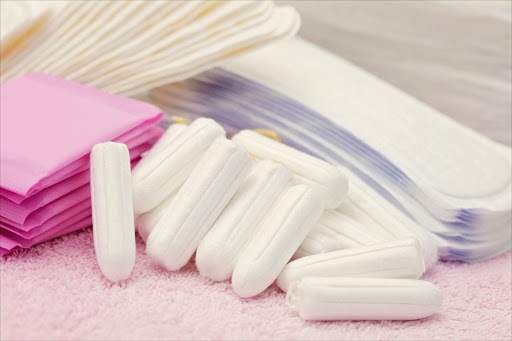The Public Relations Officer of the National Association of Registered Midwives Ghana, Rosetta Ntriwaah Boakye, has called on the government to take off what she refers to as ‘luxury tax’ on sanitary pads to make them affordable for women and young girls.
According to the midwife, who doubles as a maternal and child health advocate, the high tax imposed on the importation of sanitary pads make their use a preserve of the wealthy.
Ntriwaah Boakye described as unjust and unethical, the government’s appetite for making money from the importation of sanitary pads, hence making the prices go high.

“How do we raise our country when the basis of womanhood which is menstruation has become a burden to our women in these times due to poor menstrual hygiene related to high cost of sanitary pads,” she quizzed.
“Menstruation is a biological necessity; therefore, menstrual products are essential to female health and wellbeing. To consider sanitary pad a 'luxury goods' is not only unjust but also unethical. Somewhere in Africa (Ghana), menstrual products are classified as 'luxury' and are subject to 20% import tax whilst countries like Nigeria, Namibia, Malawi, Rwanda, South Africa etc have duty/tax exemption on sanitary pads.”
She bemoaned how the high cost of sanitary pads make it difficult for rural young girls to keep menstrual hygiene, a situation which pushes them into dangerous sexual activities with men.
“Promoting and encouraging menstrual hygiene among adolescent girls in deprived communities has become very challenging due to economic constraints. The consequences of this have made some adolescent girls vulnerable to menstrual complications whilst others have become victims of transactional sex and teenage pregnancy in their quest to raise money to afford sanitary pad.”
Ntriwaah Boakye emphasised that women grow with social stigma surrounding menstruation, which is enough burden, so the high cost of sanitary pads further worsens their plight.
She made reference to a UNICEF data which says 1.8 billion people menstruate globally every month and sanitary pad, which is the one commonest menstrual product used during this phase of natural reproductive occurrence should only be for menstrual hygiene and not menstrual luxury.
Latest Stories
-
Defence Minister justifies release of Army Generals
3 minutes -
Empower Local Businesses to Sustain Economic Gains – AGI Treasurer urges gov’t
5 minutes -
Opoku Sanaa wins TGMA Instrumentalist of The Year 2025
6 minutes -
Dettol named Ghana’s Antiseptic Brand of the Year at 2025 National FMCG Summit & Awards
17 minutes -
AGI’s Ralph Ayitey calls for revival of Akosombo textiles to restore Ghana’s industrial glory
23 minutes -
Apex live at Aviation Social Centre: A thrilling night for the Champions League final
29 minutes -
FESTAC Africa 2025 launched in Accra: A celebration of culture and unity
30 minutes -
KNUST, HUAT explore ways to chart a sustainable path for Africa’s automotive industry
40 minutes -
More than a Machine: How Gen Z confides in AI Chatbots
43 minutes -
ECG to embark on nationwide revenue mobilization exercise from June 16
48 minutes -
Nanabanyin Dadson honoured with prestigious TGMA Titan award
50 minutes -
CSOs warn of public health crisis amid nurses’ strike
51 minutes -
Review of pension scheme necessary to ensure fairness – Mahama
56 minutes -
Bolga pharmacist killing: Community pharmacists condemn murder, call for justice and protection
57 minutes -
Boyfriend allegedly shoots lover dead at Yeji
58 minutes

